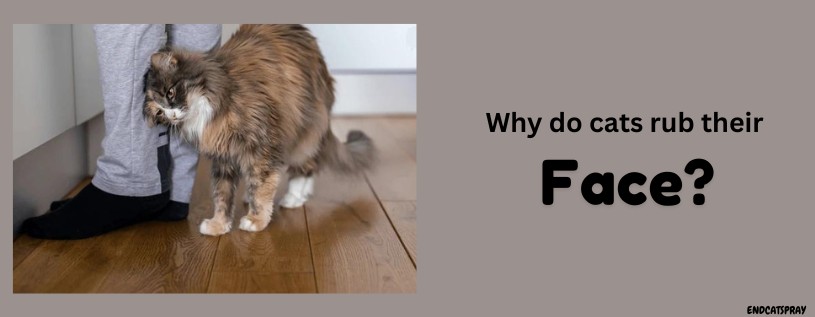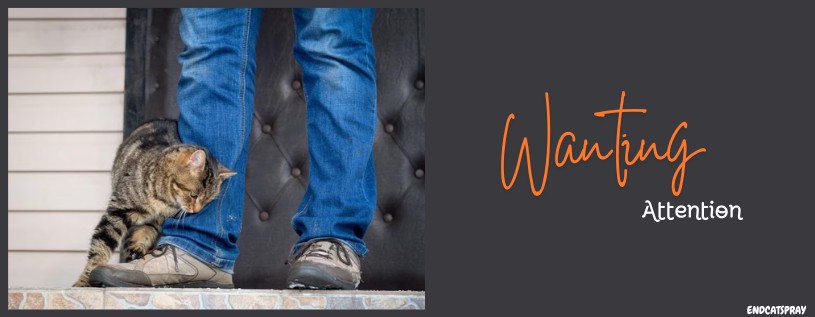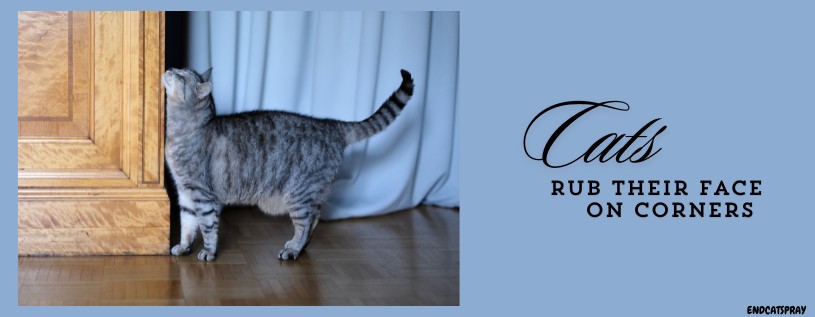Cats are very likely to show quirky behaviors towards objects. Such behaviors of cats cause curiosity in the people who witness such odd behaviors of cats. Bunting is one of the most common and, at the same time, the most intriguing habits in the cat. Bunting is their habit of rubbing their faces on the corners of objects /against the objects. This is commonly taken as a loving gesture, but it is more than just a loving gesture.
This behavior of bunting is deeply rooted in the cat’s instincts. To understand why cats have this instinct gives us details about their biology, territorial behavior, and communication. We will be digging deeper into this simple behavior of cats rubbing their faces against objects and provide insight into the cat’s biology behind this affectionate yet useful behavior.
Key Takeaways
- One of the most common behavior in cats
- Bunting help cats to transferring information in the form of signals to corners of objects especially with other cats
- They leave a trail of scent markers at the objects, which help them locate different things as well.
- Cats mark their territory by spraying on object
- The cats rubbing their faces against you as a cat owner can be a sign of a cat seeking attention from you
Why Do Cats Rub Their Face on Corners:

Bunting not only helps with transferring information in the form of signals to corners of objects but also helps to receive information about other creatures, especially other cats in their habitat. The cats want the object to smell like them, which is not only reassuring but also comforting.
They leave a trail of scent markers at the objects, which help them locate different things as well. If the scents are odd and different, it alarms the cat about an unwanted entry into their habitat. We will further discuss the main reasons why cat shows bunting too often.
The Main reasons why Cats Rub their Face on Corners:
Cats rub their faces on corners and objects for many reasons. It is simply in their instincts and biology. They show such gestures because they help them communicate, get comfortable, identify territory, and much more. The following are the main reasons cats rub their faces on corners and objects.
Communication :
Cats communicate with each other by identifying the pheromones left on objects and corners of household stuff. The pheromones are left by other cats on such objects and carry information about the cat’s identity, health, and sexual status. This is called chemical Communication, and it helps cats know about other cats.
Territorial Behavior:
Cats have sweat glands in their cheeks; these glands release scent markers and other pheromones and have receptors to receive the chemical signals left by other cats. These signals are primarily about the cat’s territory. Cats mark their territory by spraying on objects, and this scent-coded information is received by the faces of other cats receiving these signals.
Affection and Comfort:
The familiar scents around the room often induce calmness in the Cats. The cat feels safe when it witnesses the scents of other familiar animals, particularly other cats, on the objects, so it often rubs its face against the objects to feel that sensation of familiar cats around them. In short, bunting causes a soothing effect that helps cats relieve stress, anxiety, and loneliness.
Mating Signals:
Pheromones by other cats on the corners of the objects present around a cat may contain chemical signals related to the sexual status of other cats. If a cat is in heat, it may release signals of her sexual availability on objects for male cats, and so do males. So when a cat rubs its face to receive the signals, it can determine which cat is on heat or is ready to mate. These signals play a vital role in reproduction in cats.
Exploration and Grooming :
Cats have a very sharp sense of smell, and they make use of it a lot in their social life. They explore the environment by rubbing their faces on objects and collecting information about their habitat and other cats in their environment. Bunting also helps groom cats. They rub their faces to keep the fur healthy and clean. If the cat is rubbing its face against objects in its daily routine, it indicates that the cat is healthy.
Wanting Attention:

Although it is common for cats to rub their faces on the corners for the given reasons, witnessing their owner by their side can also lead to rubbing their faces with their owners. The cats rubbing their faces against you as a cat owner can be a sign of a cat seeking attention from you. Cats are familiar with their owners, and it gives them comfort when they are around. Wanting attention can be a reason why a cat is rubbing its face against you.
Conclusion:
After searching for the main reasons why cats rub their face in the corners of objects, we should conclude that it is not as simple as it looks. Bunting helps cats in many different ways, and it is one of the most useful behaviors of the cat. Bunting not only helps with self-grooming, communication, and mating but also helps to indicate its health and well-being.
If the activity of bunting is reduced, we must consult a veterinarian to see if the cat is unwell or has any disease. Almost all the activities of cats in their social life are somehow directly or indirectly related to a cat’s behavior of rubbing its face in the corners of objects.
For example, if the cat is ready to mate, it will release the mating signals from the sweat glands of its face to objects, etc. We must keep a sharp eye on our cat’s activities to see if they are trying to tell us something by their simple gestures or not.
References:
https://www.greatpetcare.com/cat-behavior/why-do-cats-rub-their-face-on-things
https://www.catster.com/cat-behavior/why-do-cats-rub-their-face-on-corners










